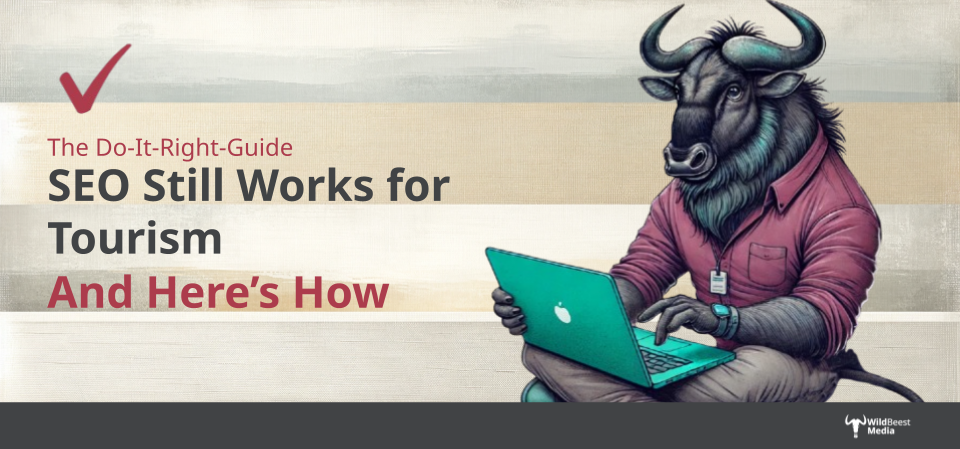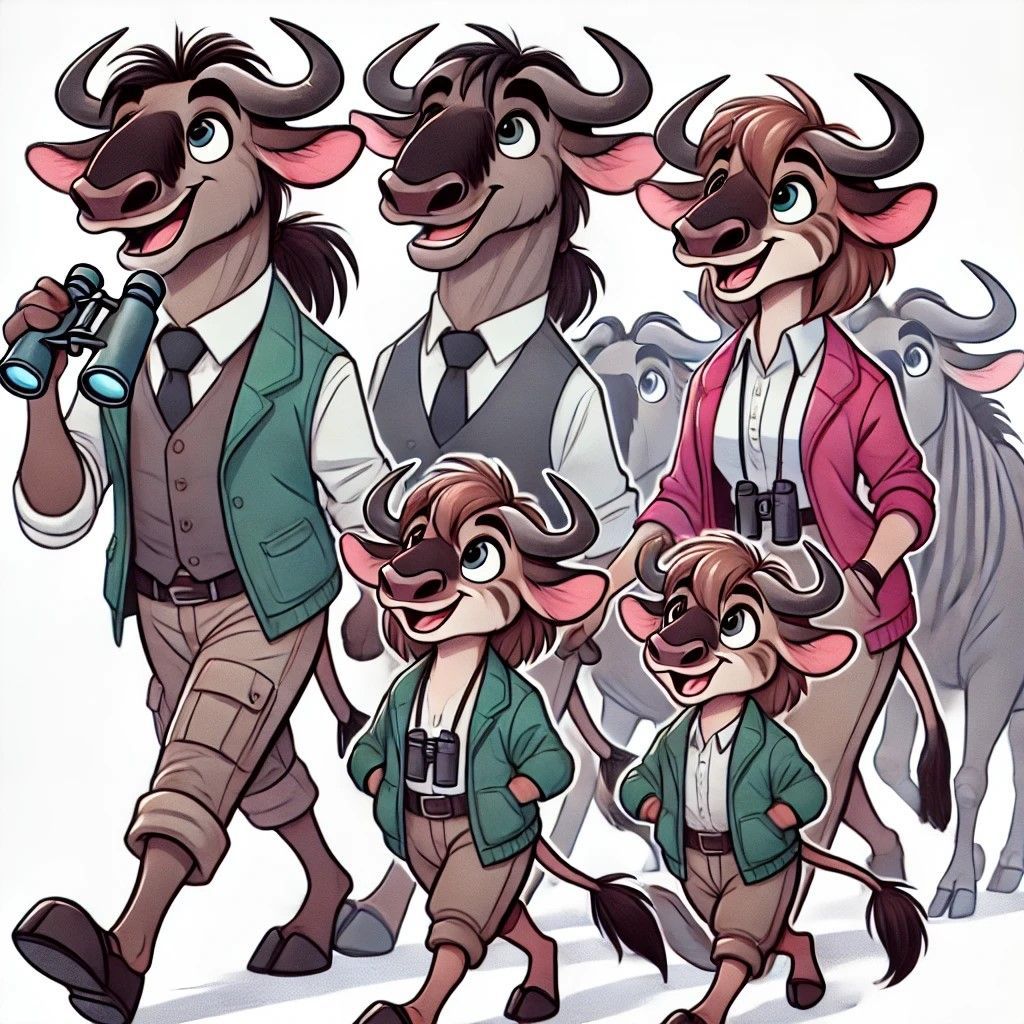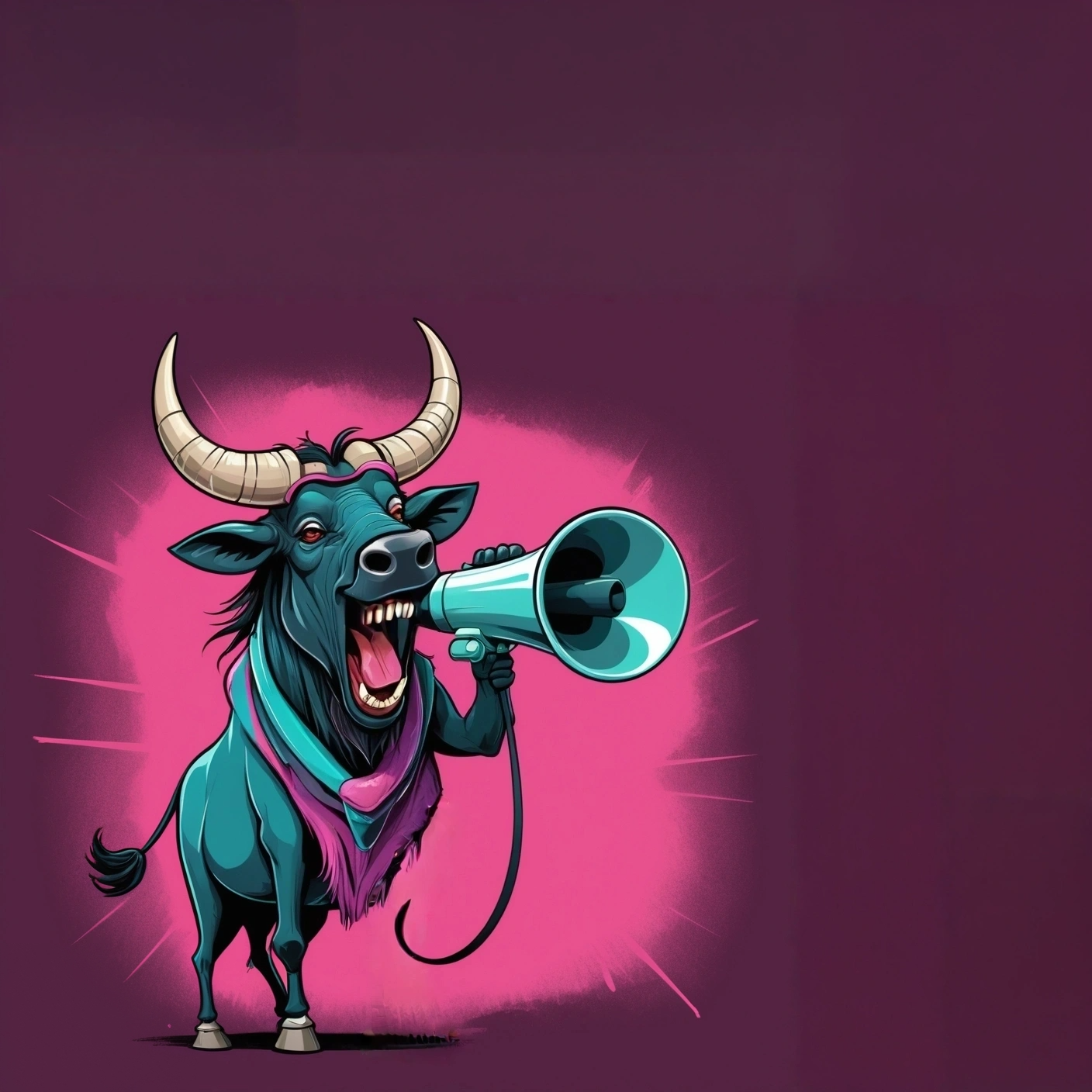Struggling with Digital Marketing for your Tourism Business?
SEO Still Works for Tourism - Here's How
If you're in the tourism industry, you've probably heard that SEO is "dead" thanks to AI and other quick-fix digital strategies. But here’s the blunt truth: SEO is far from dead; it’s evolving. And in tourism, where competition is fierce, leveraging SEO as part of a broader online strategy is not just a good idea—it’s a must. We’ll explain why SEO still matters, why it’s not just about content, and why your digital presence across every platform is crucial.

What is SEO in Tourism Today?
SEO in the South African tourism industry means optimizing your online presence to make sure potential travelers find you over the competition. It goes beyond just sprinkling keywords into content—it’s about managing how your business shows up across the internet, from your website to third-party booking platforms. This means making sure your information is congruent everywhere, from your own site to major booking sites like Booking.com, Airbnb, and Viator, to name a few. For tourism businesses, SEO isn’t just about ranking on Google; it’s about optimizing all digital touchpoints that travelers encounter.
How-To Guide: Optimizing SEO for Tourism
Step 1: Expand Your Online Presence
- Sign up and list your business on all major booking platforms in South Africa:
- Accommodation: Booking.com, Airbnb, Lekkeslaap, Nightsbridge, SA-Venues, SafariNow, WhereToStay, Afristay
- Activities: Viator, ActivityHub, ActivityBridge, Activitar, WezWot, GetYourGuide
- Why? The more places travelers find you, the better your reach. A wide presence signals credibility and boosts your visibility.
Step 2: Keep Information Consistent Across Platforms
- Ensure your business details are identical on every site:
- Name, Address, Phone Number (NAP): These should match exactly.
- Descriptions and Services: Use the same descriptions and service listings.
- Business Hours: Keep your hours consistent to avoid confusion.
- Consistency builds trust with both customers and search engines, helping you rank higher and reducing the risk of misinformation.
Step 3: Use AI Content as a Starting Point (But Add Your Own Twist)
- Use AI tools to generate basic descriptions if needed, but don’t rely on them alone.
- Edit AI-generated content to reflect your business’s unique value, and incorporate local touches to attract authentic interest.
- In tourism, personalized content speaks louder. A unique voice can turn lookers into bookers.
Step 4: Build Quality Backlinks on Trusted Sites
- Reach out to relevant travel blogs, local tourism sites, and industry directories.
- Request to be featured on their lists or contribute guest articles.
- These backlinks drive quality traffic from readers genuinely interested in travel while improving your SEO standing.
Step 5: Invest in a High-Quality Website
- Your website is your online home—where travelers can learn about you without middleman fees.
- Make it visually appealing, mobile-friendly, and easy to navigate.
- Optimize with clear calls to action (e.g., “Book Now”), fast load times, and detailed pages for each service or activity.
- A strong website not only ranks well in search but also drives conversions directly.
This guide is all about reaching travelers where they’re already looking and turning every digital touchpoint into a potential booking opportunity. Make sure to cover your bases on these platforms, stay consistent, and leverage a well-optimized website to keep travelers booking directly with you.
The Bottom Line
SEO isn’t dead for tourism—far from it. Instead, it’s shifting from keyword-stuffing to holistic online presence optimization. With travelers researching destinations and accommodations across multiple platforms, it’s essential to show up everywhere they look. Start by building a consistent online footprint, leveraging trusted booking and activity platforms, and maintaining a high-quality website. These steps not only improve your SEO but also position you as the go-to option in a crowded market.
Bonus Tip: WildBeest Media Can Help
At WildBeest, we handle the full scope of tourism SEO, from platform consistency to building high-quality websites that convert. Get in touch if you need support optimizing your online presence across the board.
Frequently Asked Questions
Why does SEO matter for tourism businesses?
SEO helps tourism businesses stand out in search results, attracting more organic traffic from people actively looking for travel experiences.
Do I need to be on multiple booking platforms?
Yes, being present on multiple platforms increases your visibility, expands your reach, and builds credibility in the industry.
How often should I update my website content for SEO?
Aim to refresh content every 3–6 months, updating information or adding new blog posts to keep things relevant and optimize SEO.
What are backlinks, and how do they help tourism websites?
Backlinks are links from other websites to yours. They signal trust to search engines, boost rankings, and attract quality traffic.
Can AI replace manual SEO efforts in tourism?
No, AI can aid in creating content or analyzing keywords, but human oversight is essential for accurate, compelling, and personalized content.
No obligations - just honest advice to cut through the BS.
Feeling Overwhelmed?
Let's Work Together
We will get back to you as soon as possible.
Please try again later.
Downloads








WildBeest
Media
All Rights Reserved | WildBeest Media
Let's Talk
We will get back to you as soon as possible.
Please try again later.

